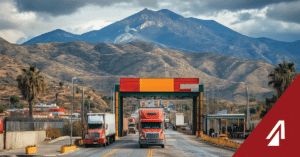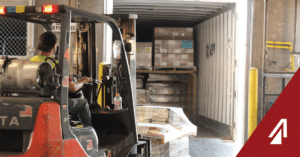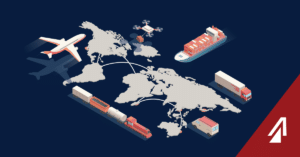The logistics industry is continuing to advance as corporate supply chains become more and more complex. Flexibility, visibility, and planning are essential in creating an efficient supply chain that predicts or quickly adapts to the changes that can occur at any moment. With the end goal always being high service levels for customers, these logistics trends are helping contribute:
1. Elastic Logistics
Every company’s supply chain is unique and has different fluctuating demand situations. Recognizing that these situations create complications, companies are moving to automated technologies that are flexible and have the capabilities necessary to capture, plan, and meet these fluctuating demands. Capacity management, control over cost, warehouse management, real-time data, and freight management are just a few of the requirements that can be customized and controlled with this concept.
2. New Technology
Technological capabilities continue to advance and the openness and interest of companies looking to make their operations more efficient are increasing too. Autonomous trucks, smart glasses, drones, artificial intelligence, and virtual reality are the leading technological advances that are beginning to be implemented. These new technologies will bring stronger efficiencies, greater service performance, and lower costs, however, companies must be fully ready for these changes so that they can adapt and smoothly implement them.
3. Driven By Data
Larger amounts of data are being gathered creating several new ways in which to analyze and interpret data. Real-time data and predictive analytics are pushing companies ahead of demand or allowing them better responsiveness. As data increasingly drives logistics planning and execution, clients and customers alike will experience higher service levels and the ability to plan and be ahead of the game like never before.
4. Regulatory Planning
As the buzz around infrastructure spending, trade tariffs, new trade deals, regulatory cutting, or regulatory increases continues, many companies are left wondering what is ahead and how these topics might affect their strategic planning going forward. With the potential for multiple changes, companies must assess how reliant they are on specific regulations. Doing so will allow companies to plan accordingly and promote or fight against proposed regulation or slashing thereof.
5. Transparency
While data and connectivity increase due to technological advances, consumers are increasingly wanting to know all they can about the products they buy. To create customer satisfaction in this area, companies are demanding greater visibility in their supply chain. The IoT and blockchain technologies are going to be playing a greater role in operations and will provide more data and information to be used for creating greater efficiencies, cost savings, and service capabilities.
The need for sophisticated technology and service capabilities is only growing and companies need experts that can provide them. Luckily, 3PL providers can offer these capabilities and take the strain off of companies who want to strengthen their core competencies and increase their abilities elsewhere.


